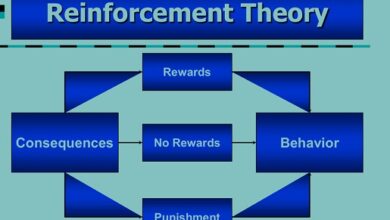How to stop victimizing yourself with Reasons to victimize
How to stop victimizing yourself
Do you know someone who plays the victim? Do you believe you may be a person with a tendency to victimize yourself? Sometimes acquiring undesirable attitudes or surrounding ourselves with people who do this can be very frustrating for our personal development and our emotional comfort. After reading this article you will be able how to stop victimizing yourself?
What is victimizing
First, defining this expression will help us to give some context on the subject. What exactly do we mean when we use the term “playing the victim”?
The meaning of victim is “a person who suffers damage through someone else’s fault or fortuitous cause”. Interestingly, the dictionary also has a definition for the term playing the victim : “complaining excessively seeking the compassion of others”.
In these definitions we can detect two extremes, the definition of victim has a “culprit” alien to the person, on the other hand, in the second definition the complaint and the intention of calling the attention of others in some way are used.
If we focus exclusively on the analysis of the expression, the sensation that can be produced is the intentionality of the person who “plays the victim”. This can result in a rejection of that person or of ourselves when we detect that we have a victimistic behavior.
Why do people victimize themselves?
When we think about attitudes that we consider negative or unwanted, it is very difficult to recognize them in ourselves , since our brain is prepared to omit what it is not capable of sustaining. But it is true that all of us, to a greater or lesser extent, have already behaved as victims at some point in our lives.
We are used to reading this type of article from a detached perspective of ourselves, that is, when we begin to read the attitude, behavior or characteristics of playing the victim, we think of someone we know or have around us. around, but we almost never exercise self-criticism.
I invite you to try to reflect on the subject, trying to identify a moment in which your behavior was similar or you believe that you could have that kind of attitude, because from the humility of observing yourself, you will be able to acquire very valuable knowledge that will it will allow you to recognize attitudes that are impeding your emotional development.
One of the big mistakes we make when identifying a person with constant complaining, passive or victimizing attitudes is the idea that their behavior is a choice, that is, that they do it because they like it or because they want to. This is not so, the behaviors or roles we play in our life are consequences of our experiences, education, culture, disposition, self-knowledge and many other factors, therefore it is not a “choice”. Therefore, it is not that we like to play the victim, but it is the way we learn to behave .
Reasons to victimize
When people act with victimistic attitudes, it is for the following reasons:
- Sensation of vulnerability . It should be considered that when we acquire behavior from a victim perspective, it is because we somehow feel that way, that is, we feel defenseless, vulnerable or disadvantaged by the situation or people around us.
- Difficulty . To assume that something overcomes us is to assume our vulnerability and, in many cases, we do not have the necessary emotional tools to allow ourselves to feel our fear or pain.
- Social pressure . In Western society, we are educated with the belief in strength, believing that we will achieve everything we set out to do and the idea of constant effort.
- Lack of emotional education . They don’t teach us to live with the emotions that make us uncomfortable or make us anxious. This makes us create models to avoid facing situations that we don’t know how to face and the terror that “failure” provokes in us. When we have knowledge and respect for our emotions and how they act in the face of the circumstances that surround us, for example, the fact of “failing” is not considered a defeat, but as a learning experience, acquiring knowledge around us and our limitations, allowing we can try again what we had proposed.
- Insecurity . On the other hand, due to insecurity and the little connection with our emotions, a “failure” would have no room, since it is assumed that “we could not”, this for a person with low emotional knowledge or who tends to play the victim is totally unsustainable and would choose to blame someone else, avoiding responsibility for their limitations. In the following article you will find information on how to overcome emotional insecurity.
Consequences of being victimized in a relationship
If you believe you are in a relationship with someone who has the habit of playing the victim, consider that you are possibly not even aware of what he is doing . Trying to show a person your victim attitude can be a bad idea, as the person who has taken on this role will not be able to identify it and will blame you, projecting their negative feelings and feeling that you are the one who wants to hurt them.
On the other hand, whatever kind of relationship you have with that person is healthy, sometimes one’s behavior is fueled by the other’s behavior . That is, you can ask yourself “how do I encourage this victim behavior?”
In some cases, one may assume the role of protector causing the other person with a tendency to avoid responsibility to assume more and more victim behavior.
If you assume the role of protector, worrying too much about someone, trying to solve their problems, crossing the line of individuality, it is good that you start to take responsibility for yourself and learn to let go of these attitudes, leaving space for the other person to learn . to take responsibility for your own actions, thus being more free and autonomous in your life, in this way you are fostering that person’s growth at the same time that you are also fostering your own growth.
If, on the other hand, you think that your behavior is that of a victim, it is convenient that you ask yourself the same question: “How do I encourage protective behavior? Detect the behaviors that we acquire within the relationship, so that you look for someone to protect you or solve your problems or emotional voids, it will help you to start being self-sufficient and responsible for your actions.
It is necessary to take into account that any relationship that is formed based on necessity, whatever type it may be, is not a healthy relationship, since one of the parties will always have power over the other, and may even alternate roles since one acquires the custom of “give and take”. A healthy relationship is not based on what we get from it , but on who we are and how we share what we are with each other.
How to stop victimizing yourself
It is to be assumed, as with everything, that there are different levels of victimistic behavior. If it was possible to do a self-criticism and you identified a moment when you behaved from a victim position, let’s see how to stop playing the victim.
1. Do a self-analysis
Try to see the reason for having behaved from a victim position, do not put the responsibility on the other, ask yourself:
- Why did I act submissively?
- Why didn’t I take responsibility?
- What scared me?
- What was I trying to avoid?
With these simple questions you can start to investigate about yourself, starting to acquire responsibility for our behavior.
2. Analyze your surroundings
In some cases behavior is influenced by the environment, as we explained before, one tendency can be influenced by another, if you realize that you are in an environment of protection or excessive control , it is healthy that you gain space, allowing you to observe your behavior out of that environment and identify if there are changes in their attitudes.
3. Take responsibility
Sometimes we want to know where our attitudes come from and we focus on finding answers, passive attitudes and victim feelings are usually due to overprotection or experiences in which we feel helpless in stages at the beginning of our development. But what is certain is that discovering the origin is not synonymous with health, in fact, it becomes an escape to not take responsibility for the present behavior.
4. Empower Yourself
Any behavior we use in the present, even if it originates in the past, can only be resolved in the present . Bringing awareness, explaining how we bond, what we look for in others, what we avoid and what attitudes we have in the face of diversity, with all this information and little by little we can acquire responsibility and empower ourselves as free people.
5. Ask for professional help
If you feel that you are not capable of doing this process alone or feel that you have no responsibility for what happens in your life, it is recommended that you consult a professional, starting an emotional growth therapy can help you acquire knowledge and power to manage your life from who you are, respecting yourself and building healthy bonds.
6. Know yourself
The only way to change any kind of attitude that satisfies us is knowledge, asking questions like:
- Who am I?
- What do I like?
- What don’t I like?
- What would I like to improve?
Seek answers to these questions through reading, conversations with people from our surroundings or from different environments, therapy or any activity that helps you to get to know yourself a little more.



